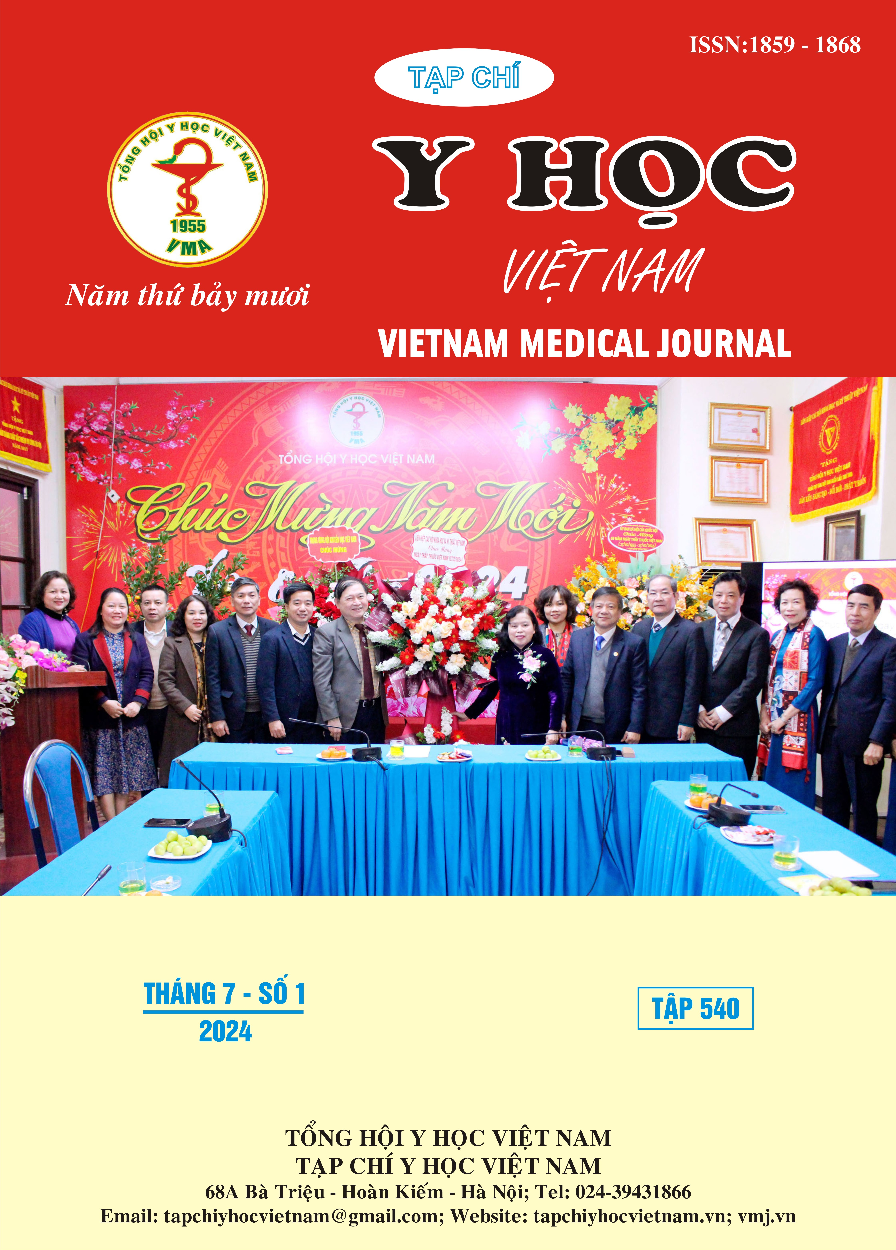TRANSLATION AND CROSS-CULTURAL ADAPTATION OF THE THANATOPHOBIA SCALE INTO VIETNAMESE
Main Article Content
Abstract
Background: End-of-life care is a very important part of medical care and palliative care. Understanding the views and thoughts of healthcare workers about death and dying will support them providing better end-of-life care. However, Vietnamese medical literature still does not have much evidence on this issue to guide practice and education. Consequently, having a validated tool to measure fear of death in Vietnamese is necessary. Objective: To translate and cross-culturally adapt the Thanatophobia scale into Vietnamese among healthcare workers. Methods: The process of translation and cross-cultural adaptation of the original Thanatophobia scale was based on international guidelines including 5 steps. Stage 1: translations from the original English into Vietnamese. Stage 2: synthesis of versions of translation. Stage 3: back-translation. Stage 4: expert committee reached consensus on pre‐final Vietnamese version. Stage 5: the pre-final version was tested on 32 on thirty two working healthcare workers from the Geriatrics - Palliative Care Department to complete the a final version. Results: The instrument was translated by two independent translators to produce two versions. In the synthesis stage, all the discrepancies were resolved through discussion. The back-translated versions were quite identical in statements and all the differences of back-translations were synonymous. The committee reached consensus and produced the prefinal version. This version was completed by 32 participants. The questionnaire was considered clear, not confusing and comprehensible to 81.3% of the participants. 18.7% of the participants had minor issues concerning the semantics of question 1, 4 and 6 of the Vietnamese questionnaire. Further explanation was provided and these participants graded the translated version comprehensible. Conclusion: The process of translating and cross-cultural adaptation of the Thanatophobia scale into the Vietnamese was conducted with recommended translation guideline. The pilot study achieved good results, receiving feedback to complete the translation. The Vietnamese Thanatophobia scale was assessed as being comprehensible, simple and clear
Article Details
Keywords
Thanatophobia, palliative care, fear of death.
References
2. Sleeman KE, Brito M de, Etkind S, Nkhoma K, Guo P, Higginson IJ, et al. The escalating global burden of serious health-related suffering: projections to 2060 by world regions, age groups, and health conditions. Lancet Glob Health. 2019 Jul 1;7(7):e883–92.
3. Dzierżanowski T, Kozlowski M. Personal fear of their own death and determination of philosophy of life affects the breaking of bad news by internal medicine and palliative care clinicians. Arch Med Sci AMS. 2019 Nov 12;18(6):1505–12.
4. Kumar SP, D’Souza M, Sisodia V. Healthcare Professionals’ Fear of Death and Dying: Implications for Palliative Care. Indian J Palliat Care. 2013;19(3):196–8.
5. Guillemin F, Bombardier C, Beaton D. Cross-cultural adaptation of health-related quality of life measures: literature review and proposed guidelines. J Clin Epidemiol. 1993 Dec; 46 (12):1417–32.
6. Beaton DE, Bombardier C, Guillemin F, Ferraz MB. Guidelines for the process of cross-cultural adaptation of self-report measures. Spine. 2000 Dec 15;25(24):3186–91.
7. Yildiz Çifçioğlu Z, Harmanci Seren AK. The Validity and Reliability of the Thanatophobia Scale-Turkish Form: A Psychometric Study Among Nurses. Omega. 2022 Mar 27; 302228221082755.
8. Gryschek G, Cecilio-Fernandes D, Mason S, de Carvalho-Filho MA. Assessing palliative care education in undergraduate medical students: translation and validation of the Self-Efficacy in Palliative Care and Thanatophobia Scales for Brazilian Portuguese. BMJ Open. 2020 Jun 29;10(6):e034567.


